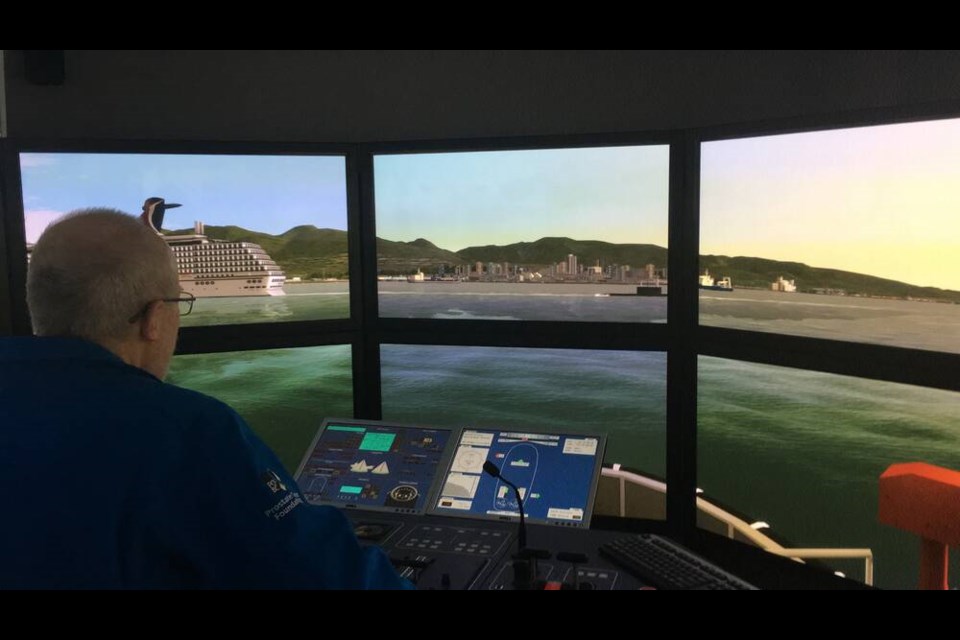A cancer diagnosis shouldn’t have to equate to a death sentence, but if you ask North Vancouver man Richard Wassersug, it can even give a renewed lease on life.
Wassersug, a PhD honorary professor of physiological sciences at the University of British Columbia, formed dragon boating team Butts In A Boat in 2016 as a means to improve the mental and physical health of men diagnosed with prostate cancer, and raise awareness for the most commonly diagnosed cancer among Canadian men. Wassersug himself was first diagnosed more than 25 years ago.
Over the course of the past eight years the team has practiced twice a week throughout the spring and summer, competing in a handful of regattas each season, and have embarked on events that have adventure at their core.
On Sunday the Butts in a Boat crew stepped into uncharted territory, trading in their traditional dragon boat for a new kind of vessel. All from the comfort of the British Columbia Institute of Technology’s marine campus in North Vancouver, the 15 members tried their hand at tugboat sailing via its virtual tugboat experience.
The simulators combine large wrap-around screens with all the controls and instruments of a real marine vessel. With the screens depicting interactive views of the Vancouver harbour, aspiring skippers can navigate local waters just as they would in real life.
“The complexity was fascinating,” said Wassersug. “You can have multiple boats in the harbour at the same time which can be interactive with each other, so you have to worry about your fellow students, and they can have things like an iceberg show up in the harbour, which you would have to work around.”
Wassersug said it is difficult to imagine two marine vessels that are more different than a dragon boat and a tugboat, and so the experience was a new and unique learning experience for many members of the team.
“A tugboat can turn in any direction, whereas with a dragon boat you need a hell of a lot of room to turn them around. They are so long and thin that they need a really large radius to make a turn and all you have is a paddle, rather than all of these instruments,” he said.
The experience was a fun and adventurous one for the team, said Wassersug, which is a prerequisite of all Butts In A Boat activities.
Dragon boating was an adventure that began for the team eight years ago, when Butts in a Boat formed as a response to the growing use of the sport by breast cancer survivors. The very first dragon boating team, Abreast In A Boat, formed as a registered charity in 1996 to demonstrate that those who have been diagnosed with breast cancer can live full, active, and healthy lives.
Now there are more than 100 breast cancer teams worldwide, while Butts in a Boat remains the only prostate cancer team in the world that regularly competes in regattas.
“It is our mission to help guys who have prostate cancer to stay fit, to accept that this is their situation and show them that they can keep on living,” said Wassersug.
Mina Kerr-Lazenby is the North Shore News’ Indigenous and civic affairs reporter. This reporting beat is made possible by the Local Journalism Initiative.



